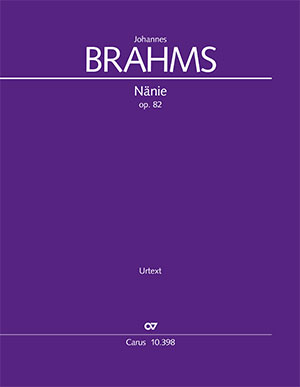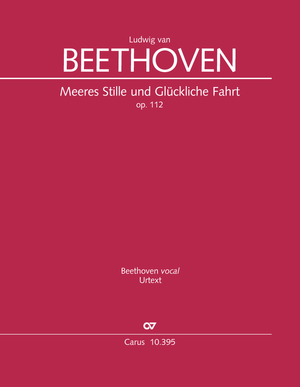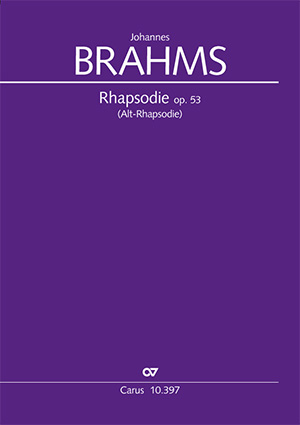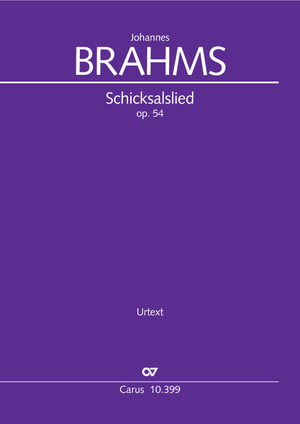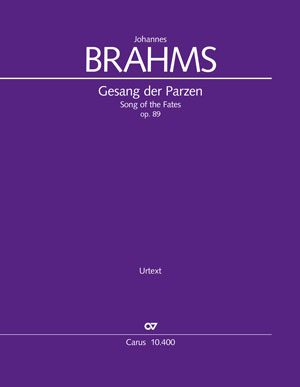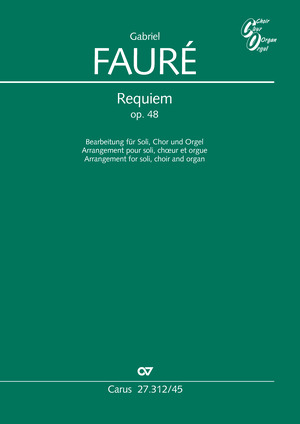Nänie
op. 82, 1880
Brahms’ elegy Nänie op. 82, based on the poem by Friedrich von Schiller, was composed in 1880/81 following the death of the painter Anselm Feuerbach, whom Brahms greatly admired. In contrast with the poem, Brahms’ Nänie ends full of hope: after earthly decline, beauty can live on in art. As in his Deutsches Requiem op. 45, in Nänie Brahms creates a musical connection between mourning and consolation in an incomparable way. Inspired by the model of classical Roman-Greek laments, the work adopts the classical verse form chosen by Schiller – surely alluding to Feuerbach’s classically-inspired art.
Scored for mixed chorus and orchestra, we are publishing the work in a modern Urtext edition. One or more harps can be used ad lib. The primary source is the first printed edition of 1881. The latest scholarly discoveries as well as practical requirements have been taken into consideration. Performance material is available on sale as well as a vocal score, based on Brahms’s original vocal score, but in a revised performing version.
Scored for mixed chorus and orchestra, we are publishing the work in a modern Urtext edition. One or more harps can be used ad lib. The primary source is the first printed edition of 1881. The latest scholarly discoveries as well as practical requirements have been taken into consideration. Performance material is available on sale as well as a vocal score, based on Brahms’s original vocal score, but in a revised performing version.
Purchase
Additional product information
-
Composer
Johannes Brahms
| 1833-1897Johannes Brahms' study of musical tradition was of crucial importance to his output: he combined church modes, canonic technique, Baroque style and diction, Bach's counterpoint and Beethoven's thematic-motivic work with the harmonic and expressive achievements of Romanticism to form his own distinctive style. In this respect his choral songs and vocal quartets (e.g. the “Liebeslieder Waltzes” and “New Liebeslieder Waltzes”), often to folk song texts, in which a musical microcosm unfolds, are examplary. His “Deutsches Requiem”, available from Carus in several different versions, constitutes one of the most fascinating confessions of faith in the history of music. Personal details
-
Editor
Rainer Boss
-
Songwriter / Librettist
J. P. Morgan
-
Songwriter / Librettist
Friedrich Schiller
| 1759-1805
Frequent questions about this work
Is a harp required for a performance?
In the first edition of 1881 the harp is explicitly marked “ad libitum”. If no harp is available, an alternative solution has been suggested specifically for measures 67 ff by dividing the 1st violins. Nevertheless, the first edition recommends that if no harps are available, the violin part should be “played by several players, if possible”.
 There are no questions and answers available so far or you were unable to find an answer to your specific question about this work? Then click here and send your specific questions to our Customer Services!
There are no questions and answers available so far or you were unable to find an answer to your specific question about this work? Then click here and send your specific questions to our Customer Services!


